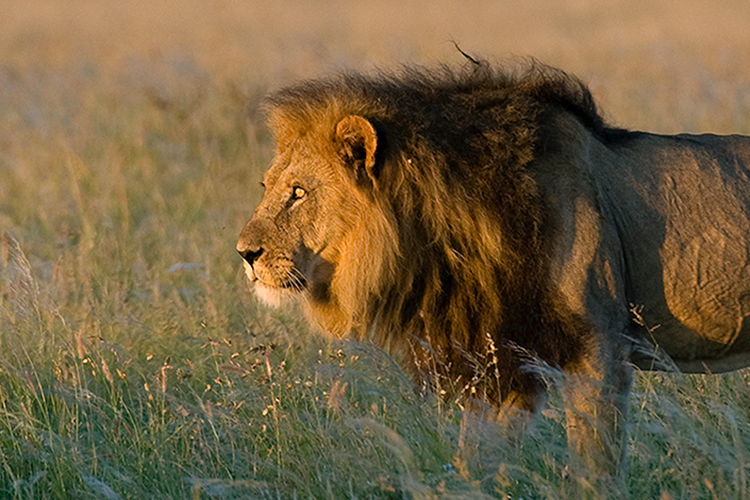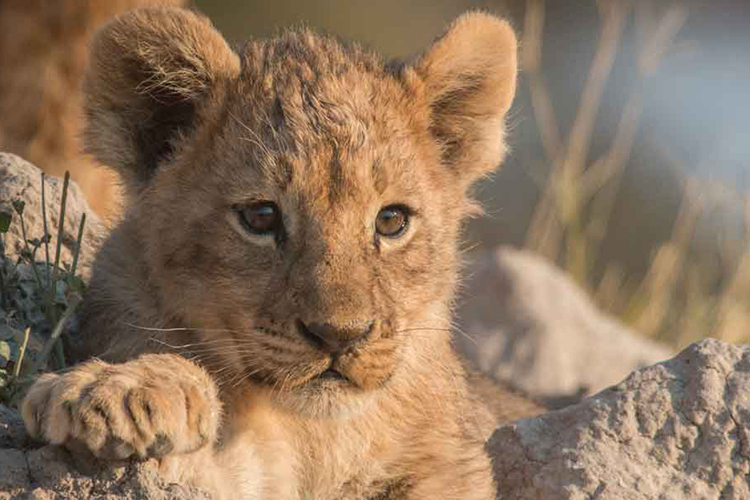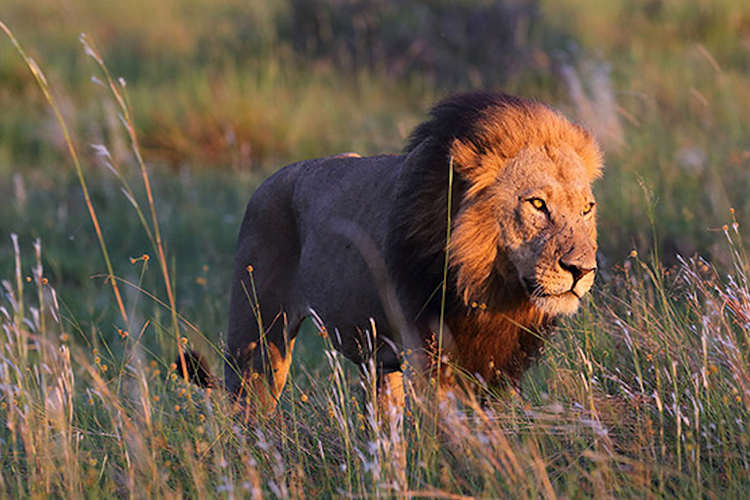Apex supports the Lion Recovery Fund
Posted by Carmin Arnot
in Africa and Conservation
A symbol of strength
Without a doubt, the Lion is synonymous with wild Africa. Lions are frequently ranked as the number one animal that travelers want to see on an African safari. Known for its striking beauty, the Lion is a universal symbol of strength, courage and majesty. As our Apex travelers will attest—whether we’re exploring Botswana, Tanzania, South Africa, Uganda, Namibia or Zimbabwe—encountering a Lion is indeed a powerful experience that elicits both fascination and extraordinary respect.
While almost all other wild cat species live solitary lives, Lions are truly the social cats of the feline world. Living in prides of up to 25 Lions, these cats work together to hunt, protect one another, and raise their young. Female Lions will hunt from dusk until dawn, doing as much as 90% of the pride’s hunting. Meanwhile, the male Lions patrol the territory and protect the pride. The Lion’s roar—the loudest of any big cat—can be heard up to 5 miles away. They’ll roar to locate other members of their pride, but also to intimidate rivals and defend their territory. Females can distinguish the roar of a male who belongs in their pride to that of an outsider, allowing them to keep a safe distance from a male Lion who might harm their cubs.
Lions are in Crisis
As resilient as they might seem, these majestic animals are disappearing at a rapid pace throughout Africa. Their distribution has been dramatically reduced to under 10% of their historic range. Over a century ago, there were more than 200,000 Lions living in Africa. Recent surveys estimate that in just the last two decades, Lion numbers have declined from approximately 30,000 to about 20,000. Lions are now listed as “vulnerable” on the International Union for the Conservation of Nature (IUCN) Red List of Threatened Species. The species is threatened by the illegal bushmeat trade, habitat loss, and conflict with local people due to the real, or perceived, threat that Lions pose to livestock.
Historically, human populations have relied on bushmeat for subsistence, but with rapid population growth this is no longer sustainable. Illegal hunting for bushmeat is one of the greatest threats facing Lions in Africa because it reduces prey populations and accidentally snares Lions as by-catch—often times killing the Lion. As communities expand across Africa, Lion populations are under pressure with less safe space to roam. They are often viewed as problematic to local communities whose economic wellbeing is tied to their livestock. Killing of Lions in retaliation for livestock loss happens often in Africa.
Hope for the future
Apex Expeditions is proud to support the work of the Lion Recovery Fund whose aim is to protect Lions and their landscapes, ensuring the King of Beasts can thrive across Africa. This non-profit organization is investing in the most innovative and effective solutions aimed at recovering Lions—backing several key initiatives such as supporting the parks and reserves that serve as Lion strongholds, and promoting coexistence so that people can live alongside and benefit from Lions.
The Lion Recovery Fund’s goal is to double the number of Lions by 2050 through deeper and broader actions by the conservation and philanthropic community alike. Since the Lion Recovery Fund was established in 2017, they have supported projects that are creating safer spaces for Lions across Africa, tackling the threats Lions are facing, and equipping conservationists with resources they need to bring the Lions back.
Learn more
Visit the Lion Recovery Fund’s website to learn more about their conservation work. Plan to join Apex Expeditions on one of our upcoming African safaris.




Thank you for bringing this important conservation effort to my family’s attention. Sad to say, I’m too darned old to be around in 2050 to see if they are able to meet their goal.